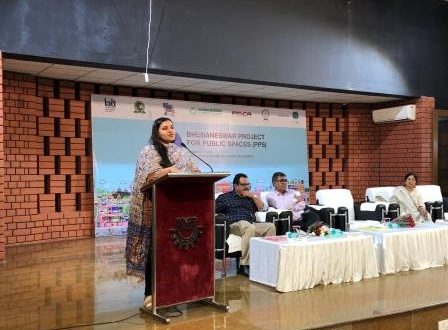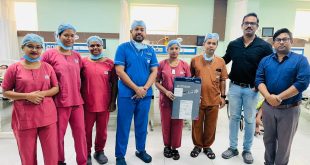Bhubaneswar: An interactive workshop for architecture students on a project for public spaces (PPS) was organised at KIIT School of Architecture and Planning where more than 150 students participated on Wednesday.
The students of architecture from KIIT School of Architecture and Planning, Piloo Mody College of Architecture (PMCA) and Department of Architecture, College of Engineering and Technology would prepare LQC (lighter, quicker and cheaper) projects and sustainable designs for 30 public places across the city to make the state capital more beautiful before the Odisha Men’s Hockey World Cup -18.
There would be cash prizes for the best entries from the submissions from the eligible students.
The PPS lecture-cum-workshop was organised by planners of Bhubaneswar Urban Knowledge Centre and senior officials of BDA in which the speakers spoke about the use of public spaces in an innovative way and understanding tactical urbanisation through use of new urban ideas and case studies.
Director KIIT School of Architecture and Planning Prof SS Ray, Additional Commissioner BDA Swadha Dev Singh, BDA Member Enforcement Bhabani Shankar Chayani and Principal PMCA Dharitri Das also spoke.
Additional Commissioner BDA Swadha Dev Singh urged the young designers to make something unique so that the visitors would remember that they had encountered such things only in Bhubaneswar.
BDA Member Enforcement Bhabani Shankar Chayani, while inspiring students to experiment with new ideas on urbanism, also advised them to respect people’s sentiment and understand ‘local ethos’.
It is pertinent to mention here that whenever a public space gets created or developed, residents and tourists will inevitably take a note of it. This fact greatly overlaps with the process and philosophy of making of public spaces. In fact, ‘place making’ as a concept is not just important for urban planners but also for city residents.
The organisation, preparation and design of public spaces with an intention to create spaces that promote people’s health, happiness, and well-being are what `place making’ all about.
These are environments for interaction and exchange of ideas that impact the quality of the urban environment by re-imagining everyday spaces.
Amidst the multiple place making approaches and initiatives undertaken by the city authorities LQC is emerging as a strong move by the Government to make communities and individuals feel intimately connected to the places and surroundings they live in.
To frame in a better way, the phrase LQC transformation of public spaces is generally used to describe the simple, short-term, and low-cost solutions that are having remarkable impacts on shaping neighbourhoods and cities.
 Update Odisha-Latest Odisha News I Breaking News Get latest news on Odisha, Govt. Jobs, OSSC, OPSC, Entertainment, Crime, Sports, and Education
Update Odisha-Latest Odisha News I Breaking News Get latest news on Odisha, Govt. Jobs, OSSC, OPSC, Entertainment, Crime, Sports, and Education



